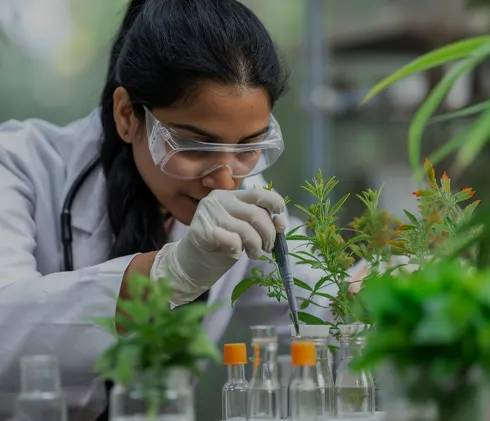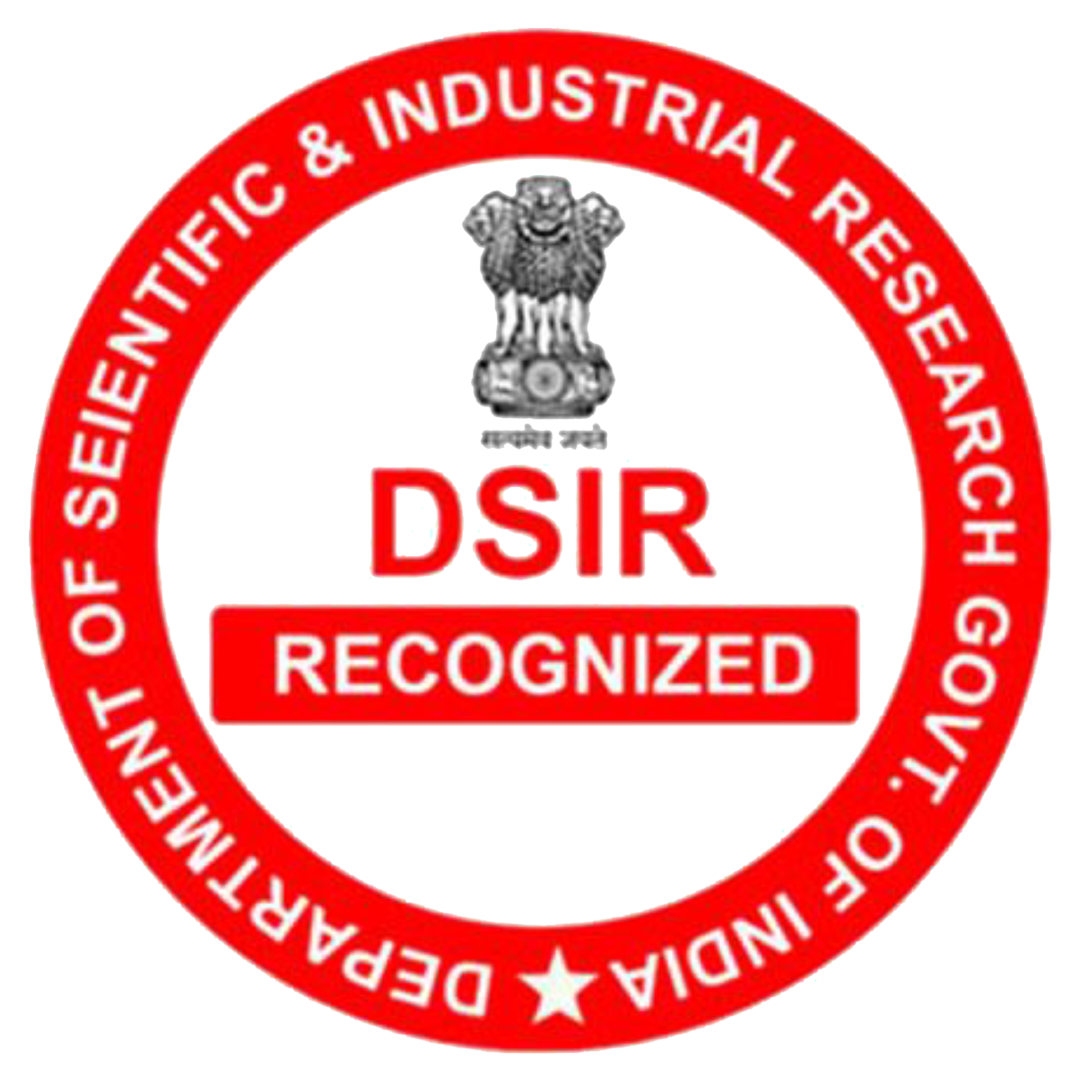
Redefining Ayurveda with Ethical and Advanced R&D Practices
‘Pankajakasthuri Ayurveda Medical College & PG centre’ or concisely ‘Pankajakasthuri’ is one of the most credible and prominent names in Ayurveda research in India. The Pankajakasthuri was established in 1988 as the consummation of an enduring vision of Padma Shri Dr. J. Hareendran Nair, who always deemed Ayurvedic concepts to adapt to evolving lifestyles. The research and development facility were naive at the incipience of Pankajakasthuri. Instilling modernized principles, ideologies and standards into its research methodologies, the R&D facility has started growing to new dimensions. Investing in recognized and prolific human resources and emulating best practices and indulging technology, Pankajakasthuri has transitioned from a makeshift R&D centre to one of the most reputed and reliable Ayurvedic organizations in the country.
Vision
At Pankajakasthuri R&D Centre, we envision a world where traditional herbal knowledge seamlessly integrates with modern scientific methodologies to provide safe, effective, and sustainable healthcare solutions for the betterment of mankind. Through our research endeavors, we strive to bridge the gap between ancient wisdom and contemporary healthcare needs.
Mission
Our mission is to advance the frontiers of herbal medicine through cutting-edge research, innovation, and collaboration. By leveraging interdisciplinary scientific approaches, state-of-the-art facilities, and a commitment to ethical practices, we aim to develop evidence-based herbal formulations/practices that enhance human health and well-being.
Core Values
01. ExcellenceWe uphold the highest standards of excellence in research, adhering to rigorous scientific methodologies and quality control measures.
02. IntegrityOur research is guided by principles of transparency, honesty, and ethical conduct, ensuring credibility and trustworthiness in all our endeavors.
03. InnovationWe foster a culture of innovation, encouraging creativity and exploration in the pursuit of novel traditional/herbal-based solutions for healthcare challenges.
04. RespectWe deeply respect traditional knowledge systems and indigenous practices/protocols, acknowledging the invaluable wisdom of generations past.
05. CollaborationCollaboration lies at the heart of our approach, as we actively engage with academic institutions, industry partners, and communities to foster knowledge exchange and synergy.
Key Expertise
01. Botanical ExplorationOur researchers explore diverse medicinal plant species, tapping into their pharmacological properties and therapeutic potential.
02. Phytochemical AnalysisThrough advanced analytical techniques, we identify and characterize bioactive compounds present in medicinal plants, laying the groundwork for formulation development.
03. Formulation DevelopmentWe design and optimize herbal formulations using a combination of traditional knowledge and modern pharmaceutical techniques, ensuring efficacy, safety, and standardization.
04. Preclinical and Clinical StudiesOur R&D cells conduct preclinical and clinical studies to evaluate the safety, efficacy, and mechanisms of action of herbal remedies, contributing to evidence-based healthcare practices.
05. Quality AssuranceQuality assurance is paramount in all our endeavors, and we employ stringent quality control measures to ensure the safety, purity, and potency of our herbal products.
Facilities
Phytochemistry
Microbiology
Formulation
Preclinical
Clinical
Scientific Social Responsibility
Focus Area
Clinical Research
Conducting clinical trials to evaluate the efficacy and safety of Ayurvedic treatments for various diseases and conditions.
Pharmacological Research
Investigating the pharmacological properties of Ayurvedic herbs and compounds, identifying their active constituents and mechanisms of action.
Toxicology
Conducting acute, sub-chronic, and chronic toxicity studies in animal models to determine the safety profile of herbal formulations.
Formulation Development
Developing and evaluating newer dosage forms and delivery systems for herbal phytopharmaceuticals.
Nano-neutraceuticals
Designing nano-encapsulated dietary supplements that improve the bioavailability of nutrients, enabling more effective prevention and management of chronic diseases.
Phytochemical Profiling
Using techniques like HPLC, gas chromatography (GC), and nuclear magnetic resonance (NMR) spectroscopy to establish the chemical fingerprint of herbal formulations.
Bioavailability and Bioequivalence
Measuring the extent and rate at which the active ingredients of a drug reach systemic circulation, using techniques like blood sampling and HPLC analysis and Comparing the bioavailability of a test product (e.g., a new formulation) to a reference product to ensure they have similar pharmacokinetic profiles.
Basic Research
Exploring the underlying principles of Ayurvedic concepts, such as doshas, agni, and srotas, through scientific inquiry.
Herbal Cultivation and Standardization
Developing sustainable practices for the cultivation and standardization of Ayurvedic herbs, ensuring their quality and purity.
Educational Programs
Offering educational programs and training courses to promote awareness and understanding of Ayurveda among healthcare professionals and the general public.





